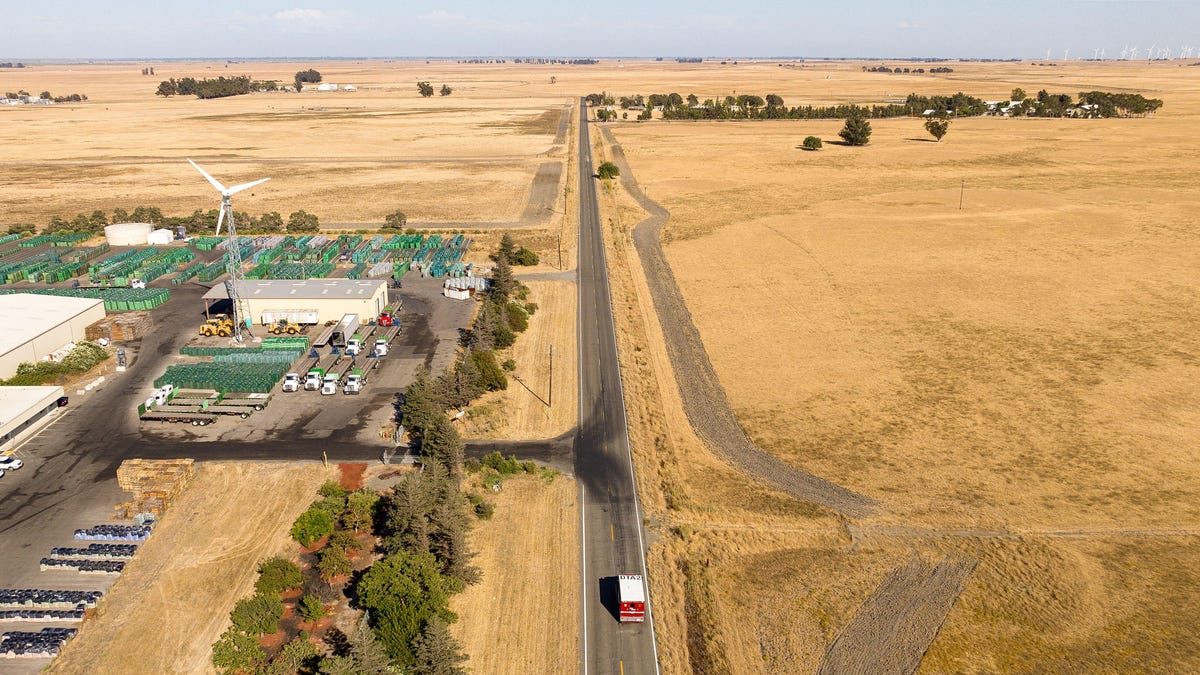The cohort of Silicon Valley tech titans who have been hoovering up Bay Area farmland in the hopes of converting it into a new city have been accused of deploying “strong-arm tactics” and a “divide-and-conquer” strategy to gobble up as much acreage as possible. A number of local farmers say Flannery Associates, the parent company behind the quixotic California Forever project, has used underhanded tactics in its pursuit of a regional real estate hegemony. The allegations were divulged in a recent court filing connected to a lawsuit involving the land disputes.
In August, the New York Times reported that Flannery, which was then a totally mysterious company, had managed to buy up $800 million of farmland in the Solano County region. The Times also revealed that Flannery was backed by a coterie of influential Silicon Valley billionaires, including folks like Marc Andreessen, Reid Hoffman, and a variety of other big names in the tech industry. Flannery’s grand plan, it was revealed, was to use the land it had purchased to create a utopian new city, which the Flannery cohort is calling “California Forever.” This supposed city is purely hypothetical for now, but its backers say that one day it could be a beautiful, bustling city of the future.
Of course, the first step to building this new libertarian wonderland was to buy up as much land as possible, and to do that, Flannery had to buy out the people who were already living there. For the most part, the folks who were already living there were the operators of longtime, family-owned farms.
In some cases, negotiations between the company’s lawyers and prospective sellers did not go the way Flannery wanted it to go and, in May, the company sued a number of the farmers, claiming that they were engaged in anti-competitive practices and price fixing. The farmers, in turn, have accused the billionaire-backed corporate entity of trying to bully and manipulate them and their families into selling away their land. In the recent court filing, the farmers dismissed the lawsuit’s claims, alleging that Flannery had repeatedly engaged in “strong-arm tactics” in an effort to pry loose the land.
Such tactics allegedly included attempts to “play one family against another by misrepresenting the families’ intentions regarding Flannery’s offers, in hopes that families otherwise unwilling to sell would feel pressure not to disappoint their friend and neighbor,” the filing states. In one specified case, the farmers claim Flannery approached one family member, acquired an eighth of a large tract of family-owned land from them, then sued the other seven members of the family in an attempt to acquire the full parcel.
On its website, California Forever has denied the charge that it acted in any way untoward, instead characterizing the farmers in question as “a small group of individuals [who] have engaged in a targeted campaign to slander Flannery Associates” and who are engaged in a nefarious “secret conspiracy.”
In general, it seems really hard to imagine that this project will ever materialize. Even if Flannery somehow manages to smooth things over with the locals, the project still needs to clear a number of state and regional regulatory hurdles. Those hurdles are looking dubious, since a lot of local politicians have expressed doubts about the viability of the project. If those hurdles, somehow, are cleared, the project’s backers then have to actually build the majestic metropolis that developers are envisioning. After that, people have to move there and the city has to retain a certain level of population density for the foreseeable future. Then the city’s creators have to actually, like, run the city…you know, forever.
This inspires a whole lot of questions. For instance, will California Forever have a government? If so, what kind of government is it going to be? Or is it just going to be some sort of corporately owned series of planned communities, sorta like an expanded version of Disney’s Storyliving? The whole thing seems like a giant expensive mess that is doomed to fail but I guess you should never count out the disruptive potential of a tech mogul’s unquenchable hubris.

